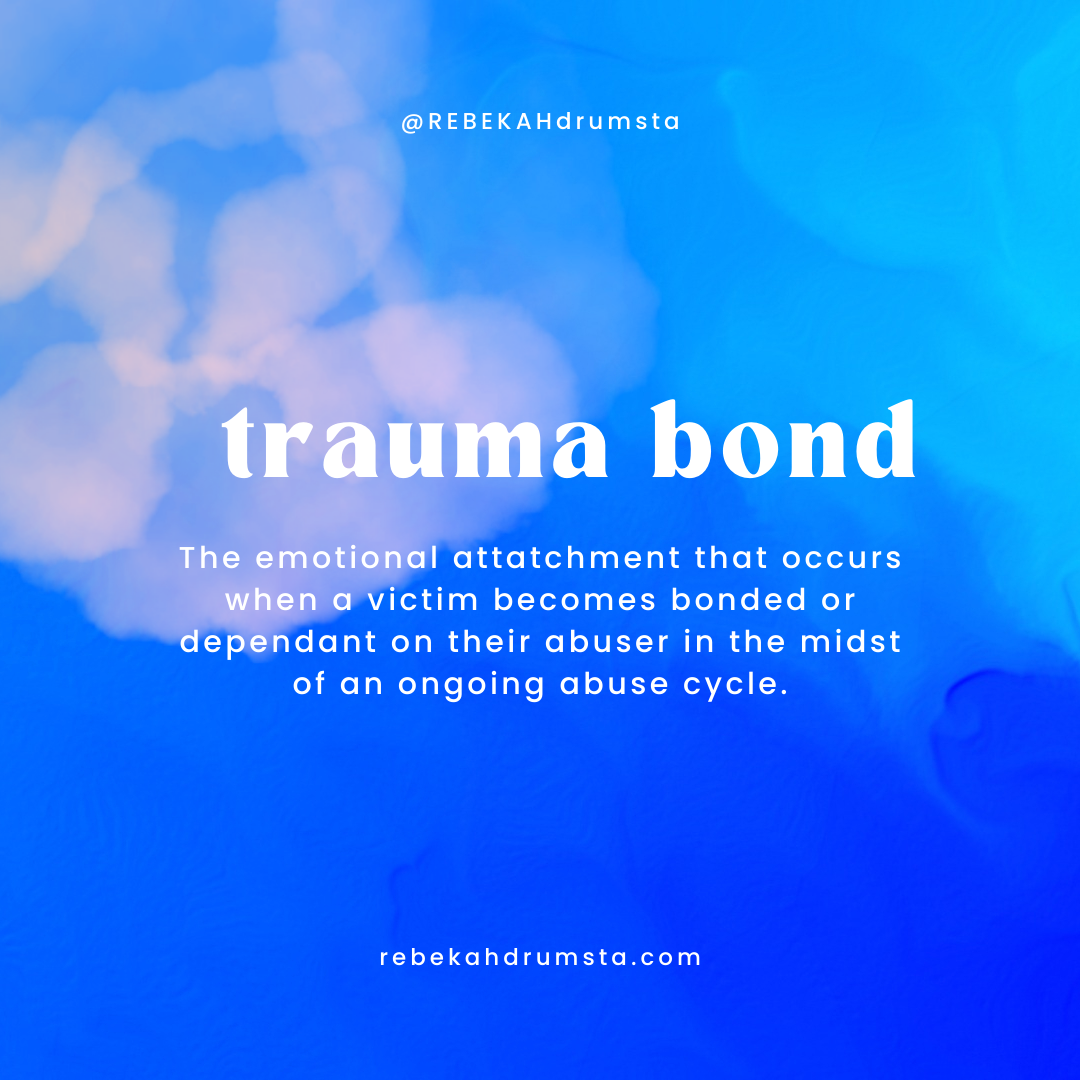Trauma Bonding With the Church
/In this post, I would like to introduce a concept I have rarely heard discussed in the faith deconstuction or religios trauma spaces.
Trauma bonding.
Trauma bonding, widely known to happen in controlling or toxic relationships such as within an unhealthy parent/child or husband/wife structure, is the emotional attachment that occurs when a victim becomes bonded or dependent on the abuser in the midst of an ongoing abuse cycle. While this type of bond is prevalent in abusive one-on-one relationships, can trauma bonding happen in a person's relationship to their church community as well?
Unfortunately, the answer is yes.
Trauma bonding with the church can occur when a person or group is exposed to an atmosphere of trauma, such as abusive behavior from religious leaders or a toxic system. This powerful type of bond often leads to feelings of dependence on the abuser or system and an inability to leave the environment due to fear. Individuals may become emotionally attached to their abusers and feel compelled to stay in order to receive spiritual guidance, stay in community, honor God or help fix the situation.
Trauma bonding can also be used as a way of controlling people by using spiritual guidance and spiritual threats in order to manipulate their behavior. The bond can be increased when the abuser comforts and connects with the victim in between gaslighting, coercive or abusive situations.
Spiritual abuse can have serious, long-term psychological effects on individuals, such as feelings of guilt and shame, difficulty forming healthy relationships with others, low self-esteem, and spiritual crisis. As a result, it is important to be aware of the signs of spiritual abuse in order to protect yourself and seek help if necessary from an experienced counselor or other mental health professional.
Good people get caught in trauma bonds. Good people find themselves in difficult situations. You may genuinely love the person or place that you now see is abusive. You might remember happy times and continue trying to please the toxic individual or group. Fear lies at the core. Don’t reject those trying to help.
Recognizing religious trauma can be difficult, but understanding the dynamics of spiritual abuse and its implications are a first step towards healing. It is also important to be aware that religious trauma is not something that can be cured overnight; healing from spiritual abuse and the subsequent religious trauma requires the time and effort of both the survivor and their support network.
By recognizing signs of adverse religious experiences, spiritual abuse and trauma bonding in religious contexts, we can better understand how spiritual power dynamics can be damaging for individuals. When the help you have received is also the channel that has caused you harm, deciphering this dichotomy can add to confusion, a sense of being overwhelmed and unsure what to do for survivors. Through understanding these concepts, we can strive for spiritual communities that promote consent, respect, and autonomy.
Ultimately, spiritual abuse and trauma bonding can have long-term emotional and spiritual impacts on individuals’ lives. It is important to be cognizant of these issues in order to seek help and heal from spiritual abuse and religious trauma in healthy environments. With the right care and support, healing can occur.
If you feel you were or currently are in a harmful situation or environment that is connected to a church, religious group or spiritual leader, it is important to seek help from a qualified professional. Know that you are not alone and that there is hope.



